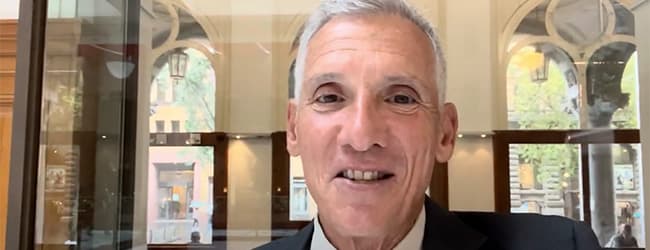
- 11 October 2023
Kevin Young Speech
The Property Club members are mum and dad investors from throughout Australia and I am here today to give them a voice on how we can solve the cost of the rental crisis in Australia.
The cost-of-living crisis in Australia has been worsened by the rental crisis and surging rents. For example, the latest figures show for example that Perth advertised rents rose 19 per cent during the past year. The highest increase in Australia and nearly four times the inflation rate for Western Australia
Property Club for several years has been warning that Australia was facing a cost-of-living rental crisis and unfortunately our prediction has proven to be correct.
The major cause of this rental crisis pre-dates COVID and dates back to two key policy decisions during 2015 and 2017.
During 2015 APRA decided to change the lending rules for landlords by instructing the banks to impose major restrictions on interest only loans.
A key part of this policy was to impose a time limit on interest only loans after which they would revert to principal and interest loans.
There was no grandfather clause which meant that from 2015 thousands of landlords were immediately faced with huge increases in their mortgage repayments. This sent a huge shock wave through the mum and dad property investment market from which it has never recovered.
In contrast, throughout the world interest only loans are still the norm on appreciating assets like property.
By reversing bad policy cheap rentals will flood back into the market at no cost to the Government.
The supply problem cannot be solved with new properties because by definition they have to be the dearest properties.
This policy change meant that someone owning 5 properties and were $1k a week positive suddenly found themselves facing a mortgage of $5k more than previous.
"How can I afford to repay that?" said landlords across the country to the banks.
The response was "sell your properties". This is why after 2015 you can see a drop off in supply of new properties.
What you do not see is the huge sale across the country by landlords.
Property Club members throughout Australia sold off hundreds of rental properties as a result of this change as they could no longer afford the outrageous mortgage repayments.
And these properties were largely bought by owner occupiers meaning that their established homes that offer lower rents were lost.
This is where the real shortage came about. The sale of cheaper rentals!
This bureaucratic bungling was enhanced by the 2017 budget.
The budget removed the ability of landlords to claim depreciation benefits on older established properties.
Unfortunately, the implications of this policy were not thought through because it created a disincentive for property investors to buy established properties that offer lower rents and rather an incentive for them to buy new properties that have higher rents.
So, this seemingly small tax change had huge implications for the rental market by cutting off the supply of cheaper older established properties and property investors were no longer interested in buying them.
This budget measure discouraged investors from buying and supplying cheap rentals. It also took target on landlords inspecting their properties. This was no longer a tax deduction. A world first.
Also, in that budget there was a sleeper tax on property. Developers land bank to contain prices on future stock and buy as much future property as they could afford to hold. In 2017 this sensible move to hold down price increases was attacked with a 1% tax on this future stock. This is a compounding tax that I believe will make up 5% of the developer’s sale price.
This bad policy was done by the Keating Government in 1985 when it removed negative gearing for rental properties and this resulted in a huge rise in rental prices.
The Keating Government reversed his error and doubled the benefit of negative gearing to investors. Investors came back to the market and solved the shortage crisis.
I believe that by reversing the bad policy decisions of 2015 and 2017 I believe cheap rentals will flood back into the market.
The supply problem cannot be solved with new properties because by definition they have to be the dearest properties.
There is another important public policy dimension to restoring the previous rules regarding interest only loans and tax depreciation benefits on established properties for investors.
Over 90 per cent of the rental stock in Australia is provided by mum and dad investors.
Ordinary people like tradies, teachers and nurses who are using property investment to build some personal wealth so they don’t have to rely on the public pension for their retirement.
By forcing mum and dad property investors out of the property market we are ensuring that more Australians will be forced to depend on the public pension which is economically unsustainable.
Encouraging ordinary people to invest in rental properties is therefore a public good. It provides much needed rental homes for the lower income Australians and also reduces the financial pressure on the Federal budget in future years by creating more self-funded retirees.
I therefore urge the committee to seriously consider my recommendation of removing the recent restrictions on interest only loans and tax depreciation changes to established properties so we can quickly resolve our cost-of-living rental crisis and ensure that public pension is sustainable over the long term.
Related Posts

The Real Problem Behind the Budget and the Solutions No One’s Talking About
Another Federal Budget, another round of promises. But once again, the people left behind are proper
- 31 March 2025

Property Headwinds Not As Bad As Feared says Clifford Bennett
Join renowned economist Clifford Bennett as he shares his expert analysis on the current state of Au
- 20 January 2025

Western Australia Tops Property Investment Growth In Australia
In good news for renters in Western Australia, the State has recorded a record level of investment b
- 11 June 2024
